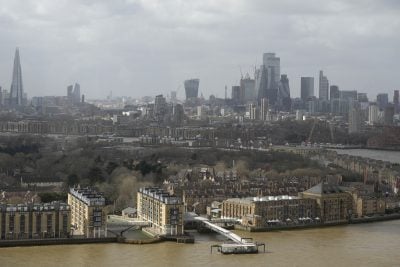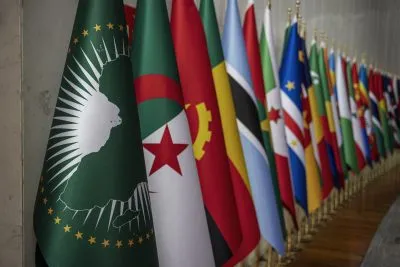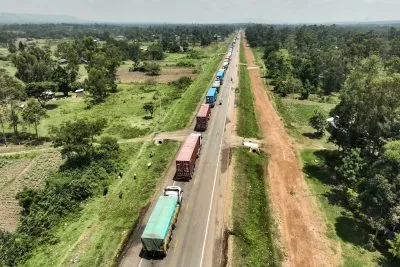The African Union describes its long-awaited Single African Air Transport Market (SAATM) one of its flagship projects in the continental body’s blueprint Agenda 2063. There is certainly a lot of enthusiasm about its launch on Monday during the just concluded African Union Summit. But what exactly is this much-talked about initiative? New Africa’s Tom Collins is in Addis Ababa and witnessed the launch.
So far 23-member states including Ethiopia, Egypt, Kenya, Nigeria and South Africa have adopted the single market which came into full operation with immediate effect following its launch on Monday at the just concluded AU summit in Addis Ababa.
“ The SAATM is very important for the overall development of the continent… we must move as fast as we can to realise the full implementation of this project,” the incoming AU Chairperson – Rwandan President Paul Kagame – said at the launch.
The SAATM is a de-regulated and harmonised air space, allowing planes to fly freely between AU member states who have agreed to the initiative.
Much can be gained from a de-regulated single African air market. The market will enhance interconnectivity, reduce costs and make it easier to integrate our economies, trade and tourism.
“The market starts operating right away. Those eligible airlines which have been designated by their countries are free to operate within states without regulatory restrictions. Competition regulations, consumer protection rules, the institutional framework and dispute resolutions for governing the entire market are already in place,” explained David Kajange, AU Head of Transport and Tourism Division.
Single market benefits
Much can be gained from a de-regulated single African air market. “The market will enhance interconnectivity, reduce costs and make it easier to integrate our economies, trade and tourism,” said Kajange.
In the past, state protectionism driven by fears that national carriers will not be able to compete with larger airlines, has meant high taxes and tariffs for those wishing to land and transfer on African soil. Rather than prop up Africa’s smaller players, the reverse is true and larger international and African carriers have dominated, being the only ones able to stay afloat. Within this context very few African carriers are able to fly inter-state and governments have spent large amounts of money bailing out their airplanes. If more African planes are to able to fly to more African countries and with greater regularity, then increased competition will significantly reduce fares and improve service for the consumers, and the sector in general will benefit.
A study in 2015 by the African Civil Aviation Commission and the International Air Transport Association found that full liberalisation of the air sector in 12 of the continent’s biggest economies would add $1.3bn to their output. Rwandan Transport Minister Jean de Dieu Uwihanganye pointed to the benefits saying: “For us, because we’ve opened our airspace for two to three years now, we’ve seen our tourism revenue double. We hope now that with all the other countries joining it will continue to increase.”
Policy versus reality
However, Kagame’s comments around the need to ensure full implementation offer a sobering reminder about SAATM’s protracted history and perhaps caution against premature celebration.
The single aviation market has been a key policy recommendation for several decades in Africa. The idea itself was formalised in a declaration dating back to 1988 which proposed the principles of air service liberalisation, known as the Yamoussoukro Declaration.
The declaration was adopted in 1999 by 44 African countries and became fully binding in 2002 at the AU’s precursor, the Organisation of African Unity. Yet in reality little action was taken. Then in 2015 a declaration on the establishment of the SAATM was adopted at the AU assembly and 23-member states signed their ‘Solemn Commitment’ of its implementation.
With only half of the member states committed there has been some pushback, and it would serve to remember that this time round as compared to the Yamoussoukro declaration, even fewer countries have put paper to pen.
Want to continue reading? Subscribe today.
You've read all your free articles for this month! Subscribe now to enjoy full access to our content.
Digital Monthly
£8.00 / month
Receive full unlimited access to our articles, opinions, podcasts and more.
Digital Yearly
£70.00 / year
Our best value offer - save £26 and gain access to all of our digital content for an entire year!
 Sign in with Google
Sign in with Google 


